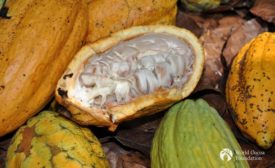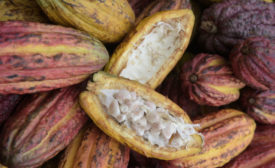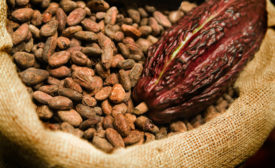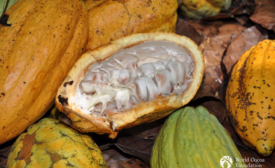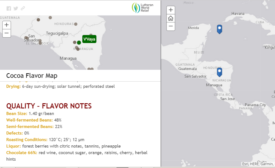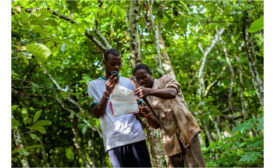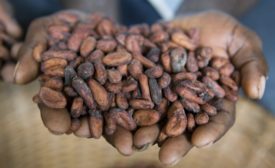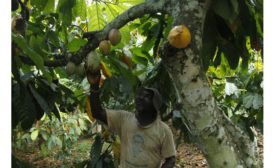Home » cocoa farms
Articles Tagged with ''cocoa farms''
Company, cocoa farmers to tap genetic knowledge to improve crops, reduce pesticide use.
Read More
Seeing cacao at the source
Alfred Ritter offers Candy Industry opportunity to see cacao growing operation in Nicaragua.
May 2, 2018
Relax, chocolate probably won’t go extinct in 40 years
Headline claiming cacao extinction goes viral, scares chocolate-lovers everywhere.
January 10, 2018
Barry Callebaut’s Forever Cocoa Initiative makes progress in first year
CEO: Goal is to make sustainable chocolate ‘the norm’ by 2025.
December 13, 2017
CocoaAction Report Card: Room for improvement
Progress made, but challenges abound for cocoa industry to ensure there’s chocolate for future Halloweens.
November 1, 2017
Lutheran World Relief launches cocoa flavor map
Map designed to highlight cocoa characteristics of partner farms in Central America.
October 31, 2017
Rainforest Alliance, UTZ to merge
One certification standard to increase efficiency for farmers.
June 7, 2017
Olam’s ‘one-stop tech platform’ improves yield, traceability for 100,000 farmers
Upgrades to farmer information system put data at the fingertips of cooperatives, customers.
June 7, 2017
Cargill establishes licensed buying company for cocoa in Ghana
Company uses digital systems for cocoa traceability, farmer payment.
April 12, 2017
Cote d’Ivoire cocoa farmers still struggling with poverty
New study shows the road to make cocoa a sustainable and high yielding crop a long and challenging journey.
February 22, 2017
Snack on the latest trends, news, and developments!
Stay in the know with Snack Food & Wholesale Bakery, the premier source of information for snack, bakery, and confectionery professionals.
JOIN TODAY!Copyright ©2024. All Rights Reserved BNP Media.
Design, CMS, Hosting & Web Development :: ePublishing
